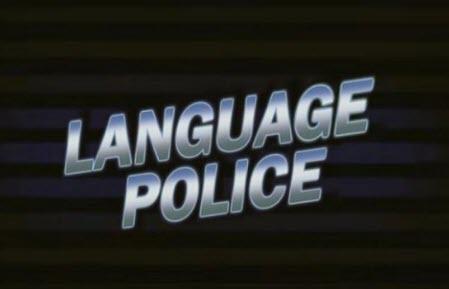Authored by Dave Huber via The College Fix,
The latest example of higher education employees looking for something to keep themselves occupied comes from Colorado State University where its Inclusive Communications Task Force has deemed the words “America” and “Americans” non-inclusive.
According to Campus Reform, the school’s Inclusive Language Guide lists terms and phrases to avoid and offers substitutes … all in the name of making “everyone on campus feel welcomed, respected, and valued.”
“America” and “Americans” are on the list because “America encompasses more than just the U.S.”
“There is South America, Central America, Mexico, Canada, and the Caribbean just to name a few of 42 countries in total,” the guide reads. “That’s why the word ‘americano’ in Spanish can refer to anything on the American continent.”
While this is true, many Latin Americans do refer to those from the United States as “americanos” or, at the very least, know the term typically refers to one from the US. “Norteamericano” is also very common, as is “estadounidense” (“one from the United States”).
Nevertheless, if you’re still determined to use “American,” the guide says you may be “eras[ing] other cultures and depict[ing] the United States as the dominant American country.”
CSU states that the document listing terms and phrases to avoid is “not an official policy or required practice,” but rather “is intended as a resource to help our campus community reflect our Principles of Community, particularly inclusion, respect, and social justice.”
“The guide is not about political-correctness or policing grammar, but rather helping communicators practice inclusive language and helping everyone on our campus feel welcomed, respected, and valued,” the guide continues.
“The guide certainly does encompass a great deal of everyday, common expressions, and it is possible that the speech of some students will be chilled if they are confused into thinking that the document represents official policy of the university,” Azhar Majeed, spokesman for the free speech advocacy nonprofit Foundation for Individual Rights in Education, told Campus Reform.
“However, given the introductory language…I think it would be unlikely that any student carefully reading the guide would be mistaken and led to believe they could face disciplinary action for their speech,” Majeed added.
Other terms/phrases to avoid include “cake walk” (invokes slavery and black minstrelry), “basket case” (originally meant a soldier in World War I who had lost all his limbs), “freshman” (it’s got “man” in it), and “Hispanic” (something to do with “colonization”; hilariously, “Latinx,” which no one knows how to pronounce let alone what it actually means,is suggested as an alternative).
Read the article and the Inclusive Language Guide.
via ZeroHedge News https://ift.tt/2Y9qWDt Tyler Durden
